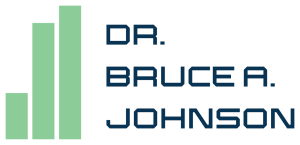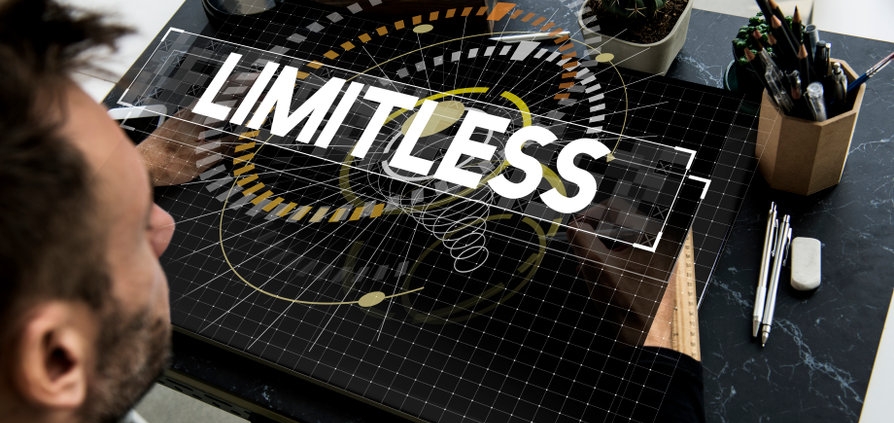When You Conquer Doubts; You Are Limitless
Have you discovered the elation that comes with being able to follow through with your own efforts, when you overcome a challenge you thought was nearly impossible, and conquered fear of something new? You are able to accomplish this and more when you refuse to listen to and accept any self-doubts about yourself or your capacity to achieve your goals or dreams.
Yet as you know, self-doubts can be powerful detractors from your positive state of mind and best of intentions. While you may decide you are going to step forward and begin to take action, especially when this involves something important you’ve thought about doing for quite a long time, a moment of hesitation can sideline you. Some people find it easier to disbelieve than believe in their ability to overcome potential obstacles, even if the obstacles perceived are not real challenges.
One of the reasons why anyone would allow doubt to take hold is having habits of thought that do not support success. This is also known as mental routines or shortcuts, which means you have patterns or ways of thinking you have come to rely upon, for essentials such as help with completion of routine tasks, responding to new requests, processing information, and other similar routine occurrences.
In order for you to overcome any doubtful feelings which may arise, it is important to recognize what habits of thought may be responsible for how you are reacting, and then find methods to address the nature of the doubt itself. Once you are able to establish a supportive mindset, you will become more willing to trust yourself whenever you attempt or begin something new.
Habits of the Mind: Helpful and Not Helpful
Are you aware of the patterns or habits of your mind right now? Consider this scenario: You are given a new task at work, something you have never completed before, requiring skills you have only recently learned. What is your initial reaction to the task you’ve been given? What you think in this initial moment involves your habit of the mind. If you instantly respond in a positive manner and accept it is possible you can complete the task, you’ve established a helpful habit of the mind. The converse is also true. If you immediately questioned your ability to take on a new role, then you have an unsupportive habit of the mind.
This also occurs when you want to do anything which may be outside of your typical comfort zone. You may have a good idea, plan, or desire to change, but if your thought patterns don’t support what you want to begin, then it won’t matter how meaningful or important those ideas may be. When your habits of thought are negative or unsupportive, you are never going to feel like actually going through with something new. Instead, you’ll look for every reason possible to confirm your unsupportive reactions. There will be no reason to want to change, as thought patterns are often engrained for the long-term, and rarely examined for validity.

Five Strategies to Overcome Your Doubts
There is only one way you will ever break the habit of thought patterns you have now, and it is to become aware of what it is you are thinking, and change it before it interrupts your new ideas. You will know you need to use one of these strategies when you have a good idea, or you have a task to accomplish, and immediately there are negative reactive thoughts filling your mind. There are some strategies you can use, any time you either want to start a new project, you’ve been given something out of the ordinary to complete, or you find yourself questioning your determination and resolve, and you’re feeling as if you want to give into self-doubts.
#1. Develop a Vision
Whenever you want to make changes, the following strategy can assist you. Think ahead and develop an image of what a new future could look like after everything has been implemented, regardless of the size of those changes. Then hold onto that vision in your mind and allow yourself to experience the feelings of an improved future, regardless of any aspect of what’s involved, whether it is the scope, time, energy, or resources required.
What you are doing is becoming intentional in your response, rather than reactive, which can help you avoid negativity. As a result, you will likely work much harder to make your new idea or plan a reality. Once you establish positive beliefs, which is done with a supportive vision, you’ll find every reason to work past challenges and doubts.
#2. Challenge Your Doubts
It doesn’t matter how many times you’ve thought about making a new start, developing new plans, creating a new project, or completing anything you have thought about over time. What matters most now is making a decision you are going to begin, even if it challenges your own self-doubt. If you do experience an unsupportive thought pattern, then you must challenge it. To do this ask yourself questions such as: Why do I believe this now? Why do I accept this belief now? You will discover when you make the first step, or take some form of action, a new future begins.
#3. Think of Your Potential
Many people use the power of regret to hold themselves back, and it often begins with the phrase: “If I had only”. Should you find yourself caught in the trap of regret, or holding yourself back because of past missteps or mistakes, then it is time to try a new method of thinking. You do this by thinking about your potential. It doesn’t matter what has occurred in the past as the future is where you’ll find your new outcomes. When you consider how much you can accomplish, it is done through the power of your beliefs, and not by doubting yourself. This form of thinking also offers you an opportunity to work past any questions you may hold about your ability or capacity to get started, as it is all about creating a sense of potential and hope.

#4. Develop Supportive Beliefs
The power of what you think lies in an ability to change how you feel at any time. Yet this requires being focused, in that you must become aware of what you are thinking and be willing to change it. When you do, you can develop new and supportive beliefs, stop persistent doubts about yourself, and look towards the future anew. What a supportive belief consists of is something as simple as a statement that involves “I can”, “I am going to”, “I will”, or “I know I have an ability to”. But words alone are not enough. If you are going to make one of those statements, then you must try your best to accept those as being the truth now. When you do, you are transformed and able to support your own progress and self-development or improvement. As you continue to make those statements of supportive beliefs, you’ll find new thought habits are developed.
#5. Find Your Source of Strength
The many strategies listed require you to engage in new forms of thinking, which may be quite different than how you are thinking now. The question then becomes this: How do you change patterns of thought that have been habitual in nature, especially when those thoughts are coming into direct conflict with something new you are contemplating? The answer has to do with your ability to find your internal source of strength, so that you are able to make a first step forward and move past reactive thoughts which may be negative or not supportive.
This source of strength is often referred to as determination, willpower, and resilience. It is personal to you and is something you often rely upon whenever challenges arise. You will recognize the need for strength, any time you want to question your abilities or capabilities. Regardless of what you call the source of your internal strength, remember you have something you can rely upon whenever you want to change or begin something new. This will help you to take the initial idea, turn it into a movement or step forward, and then help you sustain momentum as progress is made.

Discover How You Become Limitless
You have yet to fully realize the potential you possess, until you know what it’s like to conquer your doubts. It is possible to have doubts arise whenever you have something new you want to develop; however, you can overcome those thought patterns no matter how long you have nurtured them. You need to start believing in yourself, despite any questions about your ability to face what’s ahead, the times you’ve questioned decisions made in the past, or moments you counted as failures. The reason why is that you can always learn, adapt, and through determination, become even stronger.
It is possible to be in control of your life through control of your thoughts. Pay attention to how you respond to new situations or new tasks, as this involves your practiced habits of thought. As you develop nurturing self-beliefs, you will become more likely to keep thinking in this manner, replacing your unsupportive thoughts. There is nothing that can stop you from achieving what you want in life but your own self-doubts. Once you recognize and control your doubts, you become limitless in your ability to create new dreams, develop new goals, establish new outcomes, or plan a new future.
About Dr. Johnson
Dr. Bruce A. Johnson has been teaching and training adults since 1982. From 1982 to 2005 he worked in the field of training and development, with his last full-time role as Manager of Training and Development. Since 2005, Dr. Johnson has been working in the field of distance learning, with roles including online educator, Faculty Development Manager, Core Faculty, Dissertation Chair and Committee Member, and Faculty Development Specialist. He also worked part-time for many years as a Human Performance Improvement Consultant.
Dr. Johnson is an inspirational author, writer, and educator. His life mission is to teach, mentor, write, and inspire others. He has earned a PhD in Postsecondary and Adult Education, a Certificate in Training and Performance Improvement (TPI), a Master’s in Adult Education, and a Master of Business Administration (MBA).
As a scholar practitioner, Dr. J was published in a scholarly journal, and he has been a featured presenter at an international distance learning conference, along with presenting at three faculty conferences. He has also published over 230 online articles about adult learning, higher education, distance learning, online teaching, and mindset development. Dr. J published three books related to higher education, including two about online teaching.
Getting Down to Business: A Handbook for Faculty Who Teach Business.
Transform Adult Education: Expert Teaching Strategies for Educators.
Transform Online Teaching: Expert Strategies and Essential Resources Every Educator Needs.
Come join Dr. J’s new group, Motivation for Transformation:
• Any time of the day, visit this group to find your source of motivation, to be inspired and more importantly, have your mindset transformed: Motivation for Transformation
Dr. J offers transformative resources
Please visit the Books page and Store page for more details.
You can also find Dr. J on the following social media sites:



